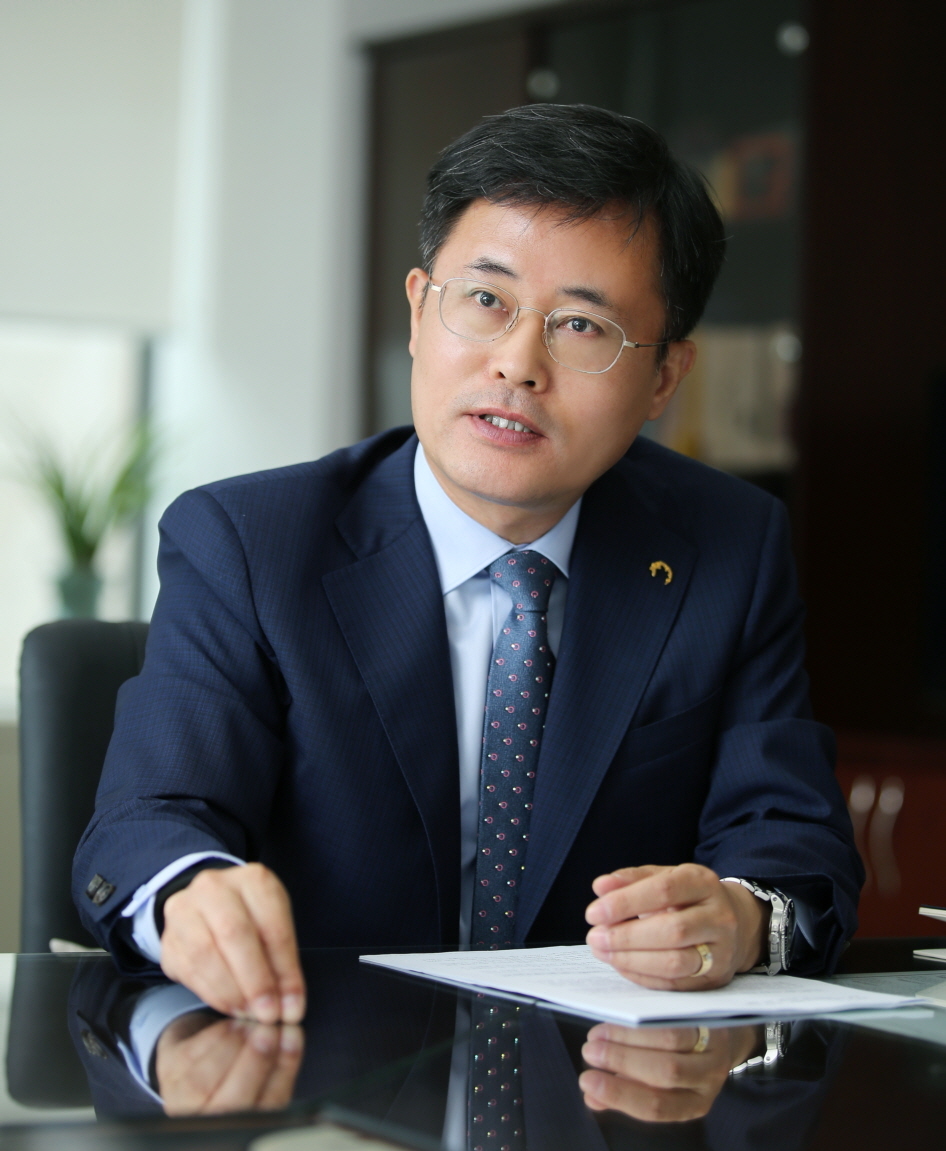KLES CEO proposes labor-management relations as key to overcome the ongoing crisis
By Shim Woo-hyunPublished : Dec. 15, 2021 - 16:43

The COVID-19 pandemic has prolonged a global economic recession, accompanied by disruptions in global supply chains that jeopardize many work environments.
Chung Hyoung-Woo, secretary-general and CEO of the Korea Labor and Employment Service, said the ongoing economic difficulties could potentially escalate conflicts between labor and management over a wide range of matters, including wages, layoffs, safety, work hours and unionization.
“The outbreak of the COVID-19 variant has cast uncertainty on the global economy’s recovery and also increased instability in labor-management relations,” Chung said.
To overcome the deepening economic setback and to adapt to the rapidly changing business environment, companies should build cooperative labor-management relations, he said.
Chung also pointed to the ongoing social and political changes in South Korea, which will potentially change the scope of labor-management relations.
Chung argued that conflicts could arise as candidates for the presidency introduce their new labor policies for the 2022 South Korean presidential election in March.
For example, the newly adopted Serious Accidents Punishment Act, effective from Jan. 27, could also increase tensions between labor and management. The new law has been criticized for not covering employees working at small businesses.
Chung stressed that establishing healthy labor-management relations have become essential for companies to survive the ongoing economic crisis and to promote sustainable growth.
“It is most important for the labor and management sides to have the mindset that they should work together” to minimize disputes and adapt to changes in business environment during the new era, Chung said.
“If one side gains the upper hand in labor-management relations, their relationship could easily fall apart. Both sides need to increase communication and openly share their opinions before coming to an agreement,” Chung said.
Chung said the role of KLES, as a public organization dedicated to helping employees and companies to build cooperative labor-management relations, will become more important than before.
Founded in 2011, the KLES provides various services, including consultation, diagnosis, and training for individual workplaces, to help local firms improve their labor-management relations. The KLES also provides companies with financial aid needed to run activities, which they initiate to build cooperative relationships.
Chung said the KLES prioritizes small and mid-sized businesses, which often have weak labor-management relations and financial difficulties.
The KLES currently allows small and mid-sized firms to pay only 10 percent of the expenses that go into activities for improving labor-management relations and covers the rest of the expenses itself. The KLES asks public companies and large firms to share 30 percent of the expenses.
The KLES also gives advantages when foreign-invested companies apply for the KLES programs.
Chung said the KLES has increased its support to companies that receive foreign investment, given that more and more companies in South Korea now operate with overseas investment.
The KLES currently provides advantages to firms in which foreign investors hold a stake of over 50 percent, when reviewing applicants for the KLES programs.
Chung said the KLES programs have been proven to be effective. Last year, around 62.5 percent of the companies that received awards given by the Ministry of Employment and Labor for their exemplary labor-management relations had gone through the KLES programs.
“The KLES programs facilitate communication between labor and management when they are in conflict. The programs also help them improve and coordinate their labor-management relations in ways to adapt to changes brought by the changing social dynamics,” Chung said.
Chung added the KLES has been increasing its efforts in research and publications to help companies to understand what labor issues need to be prioritized.
In December, the KLES published a set of six new labor management manuals for companies that operate businesses in overseas countries, in a bid to help those firms to better solve labor issues caused by the prolonged COVID-19 pandemic.
Earlier this month, the KLES held an online seminar for companies need legal consultations from law experts, particularly those firms operating businesses in Indonesia and Vietnam. Chung said the seminar was organized to help Korean firms planning to operate overseas to cope with new labor legislations being introduced in those developing countries.
Since his inauguration in April last year, Chung has been focusing on solving new labor issues that stem from the “fourth industrial revolution” as well.
Chung previously stressed that a set of new employment services need to be introduced to ensure employment security of workers who could be marginalized by the shifting population structures and the introduction of smart factories.
Chung said the KLES will increase its consultation capabilities to help companies to build “employment-centered” work environment, to help them survive in industries that have marched into the digital era.
“Underlying all corporate activities are harmonious labor-management relations,” Chung said. “Business environment changes at an alarming rate these days due to a variety of external factors. To better cope with the ongoing changes and overcome difficulties, companies should be able to first build a balanced partnership between labor and management,” Chung added.
Chung pledged that the KLES will step up its efforts to support firms to receive quality labor-management programs in the future.
The KLES will introduce a one-stop service, through which companies can receive more comprehensive support, including labor relations, workplace innovation, and employment services for aged 40 or more. Chung added the KLES will operate a headquarters that oversees different branch offices in five different regions, starting next year.
By Shim Woo-hyun (ws@heraldcorp.com)







![[KH Explains] How should Korea adjust its trade defenses against Chinese EVs?](http://res.heraldm.com/phpwas/restmb_idxmake.php?idx=644&simg=/content/image/2024/04/15/20240415050562_0.jpg&u=20240415144419)











